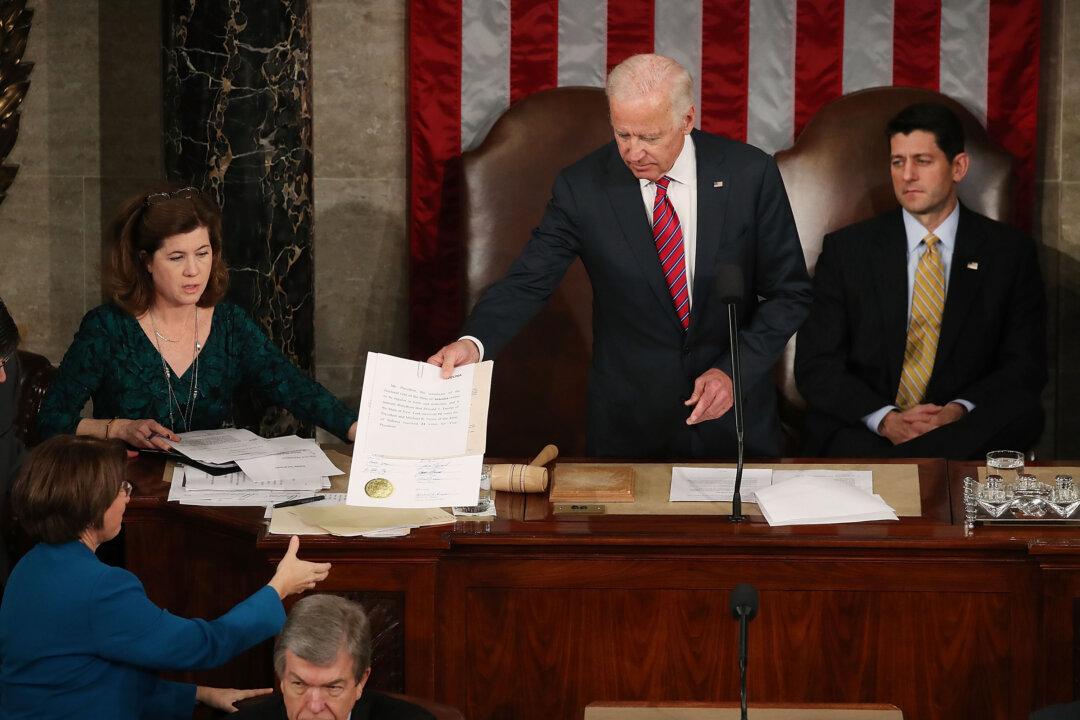The House of Representatives and the Senate on Jan. 3 adopted rules that outline how the counting of Electoral College votes will take place on Jan. 6.
The rules were passed without recorded votes. Instead, a voice vote was used in both chambers.


The House of Representatives and the Senate on Jan. 3 adopted rules that outline how the counting of Electoral College votes will take place on Jan. 6.
The rules were passed without recorded votes. Instead, a voice vote was used in both chambers.